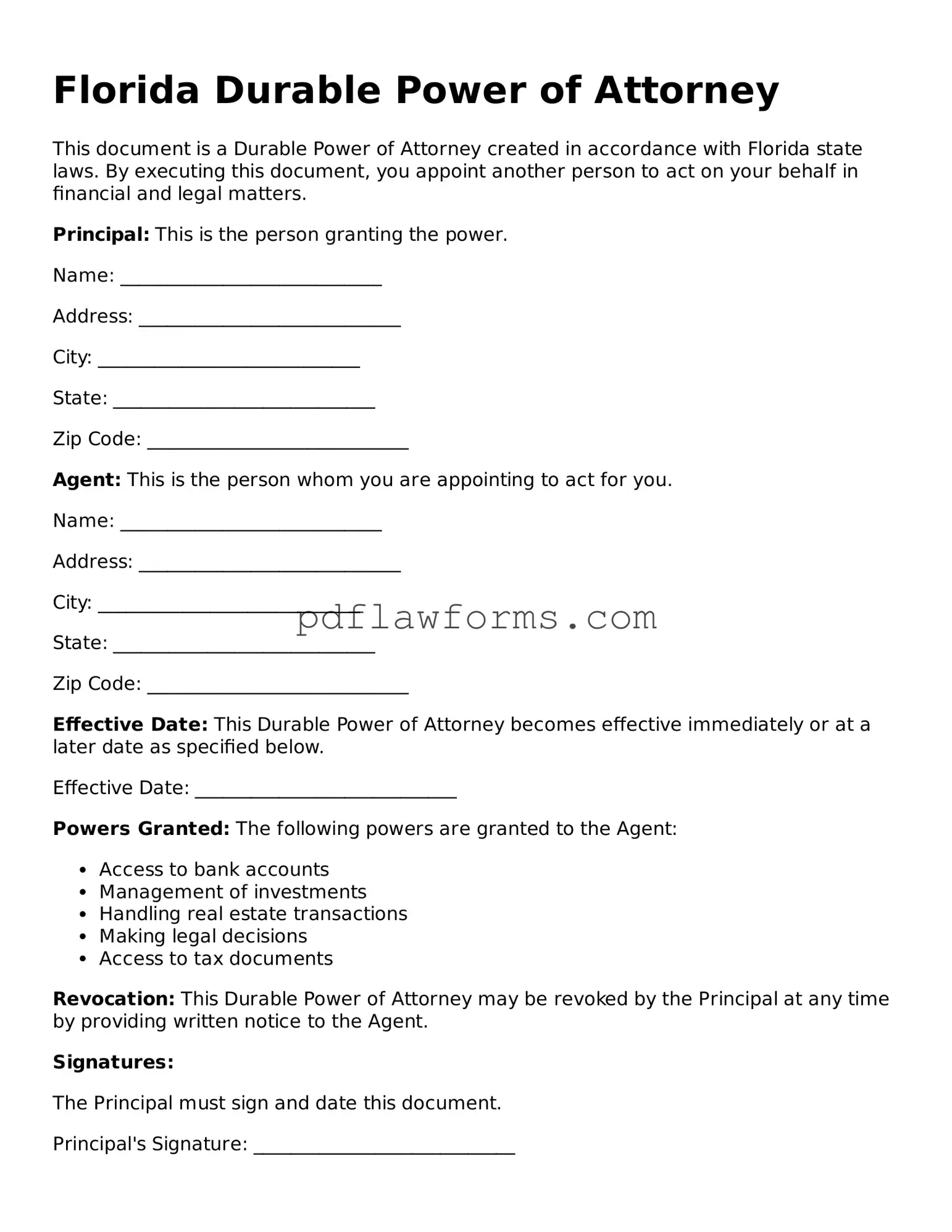Durable Power of Attorney Form for the State of Florida
A Florida Durable Power of Attorney form is a legal document that allows an individual to appoint someone else to manage their financial and legal affairs. This form remains effective even if the person who created it becomes incapacitated. To ensure your wishes are respected, consider filling out the form by clicking the button below.
Make My Document Online

Durable Power of Attorney Form for the State of Florida
Make My Document Online
You’re halfway through — finish the form
Edit and complete Durable Power of Attorney online, then download your file.
Make My Document Online
or
⇩ Durable Power of Attorney PDF
